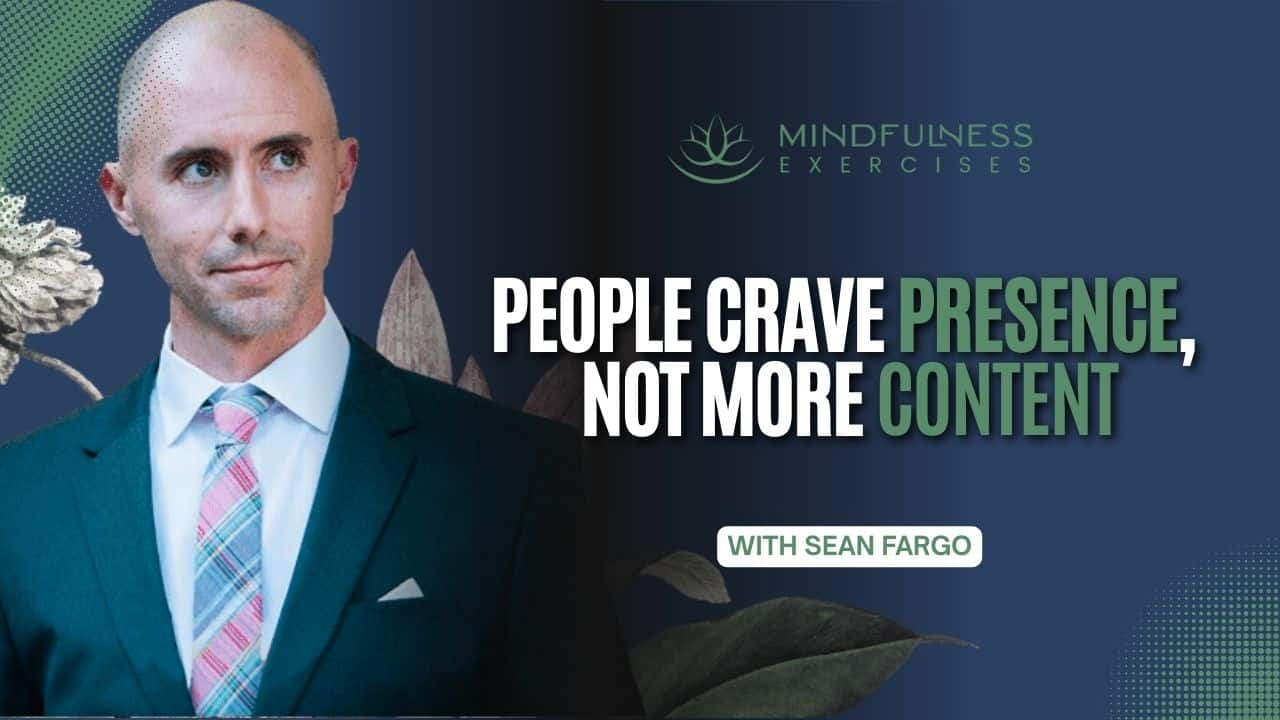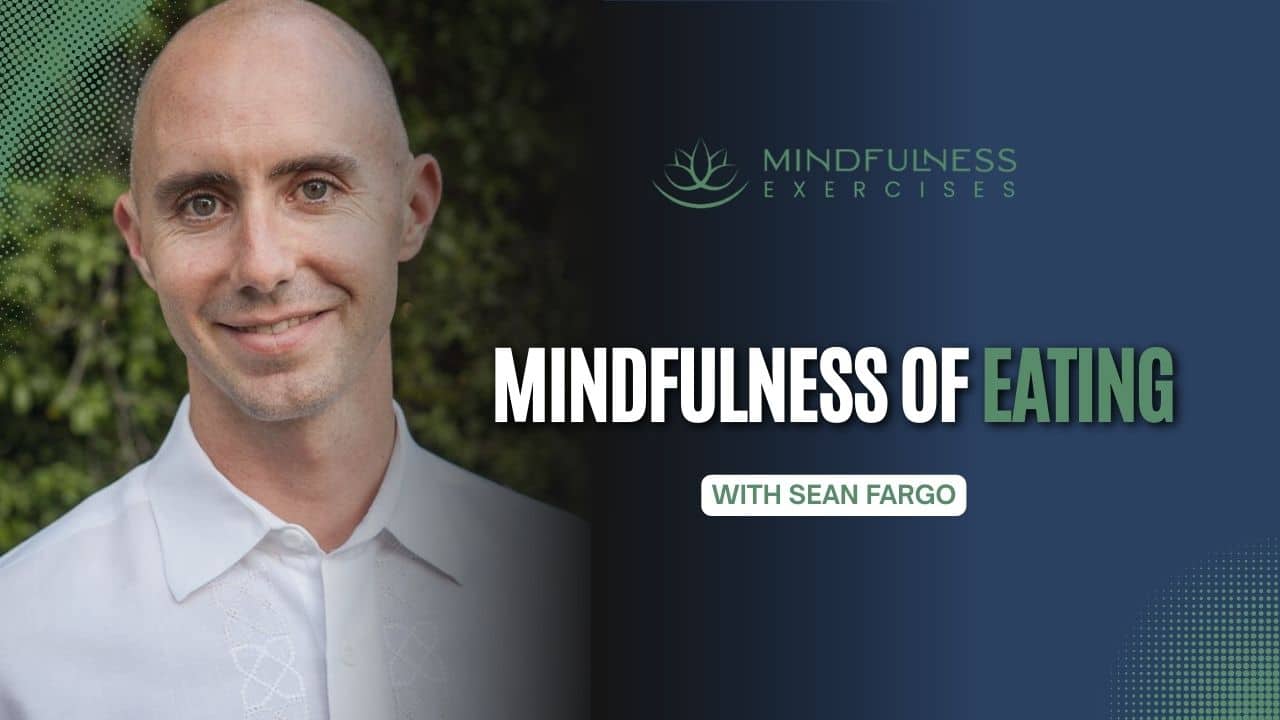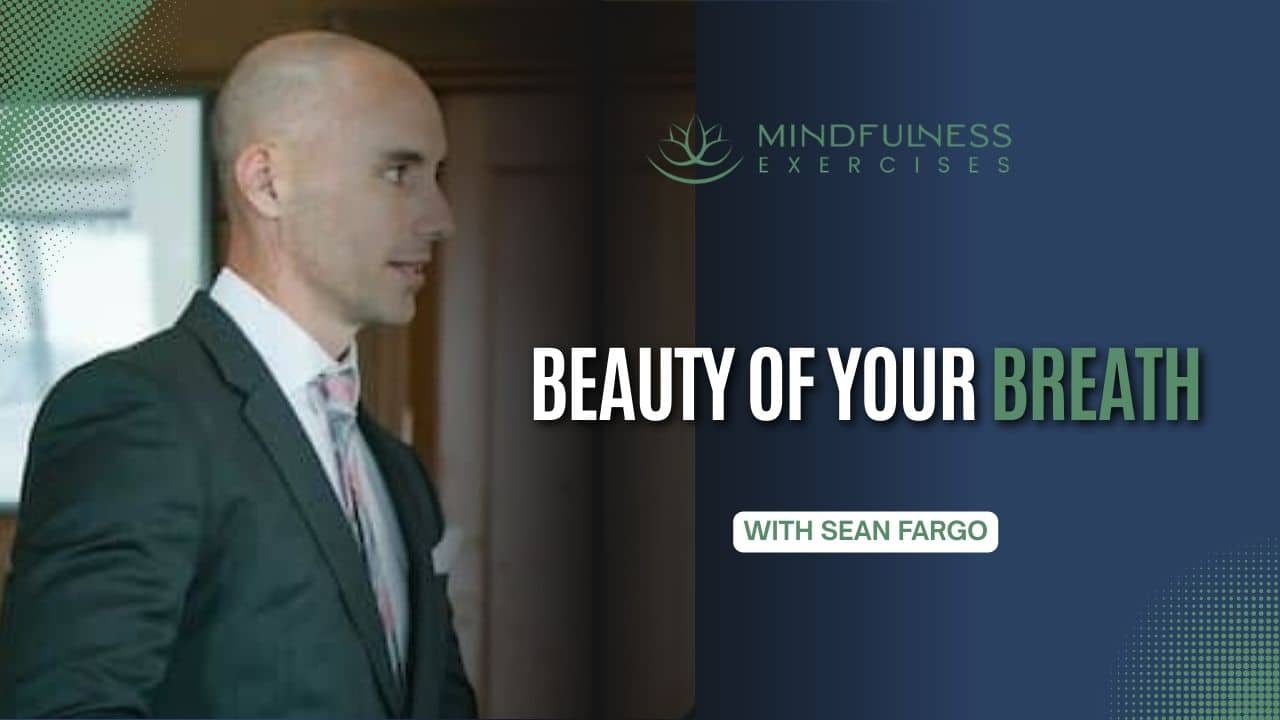Listen now

Can we improve our health simply by changing our minds? Dr. Ellen Langer says it’s not only possible, but that the mind has far greater influence on our bodies than we currently imagine.
Her belief that we can think our way to better health is rooted in over 40 years of mindfulness research. With each of her 13 books, Ellen Langer has persuaded more and more people that mindfulness makes our health, and everything in our lives, better.
In this episode, Sean Fargo speaks with Dr. Langer about the research behind her most recent book, The Mindful Body: Thinking Our Way to Chronic Health. Ellen shares why mindfulness is key for both preventing and healing serious chronic illness.
What You’ll Learn in This Episode:
Show Notes & Quotes:
A science-based definition of mindfulness
As a researcher, Ellen Langer has to be exact about what she means when she uses the word ‘mindfulness.’ In her studies, mindfulness has nothing to do with meditation. For her, meditation is a practice that leads to post-meditation mindfulness. In her research, mindfulness is defined as actively noticing new things about what you think you already know. It’s no better or worse than meditation; just different.
“Why does it have to be about the things you think you know? Because then you come to see, ‘Gee!’ You didn’t know it as well as you thought you did. When people recognize that everything is changing, everything looks different from different perspectives, it turns out we don’t know very much. In fact, uncertainty is the rule rather than the exception. And most of the courses you take in school, your parents, almost everybody is teaching you absolutes. And these absolutes are just wrong almost all the time. And when you think you know, you don’t sit up and pay any attention.”
How mindfulness makes everything better
Even the things we think we know best are always changing. For example, one plus one isn’t always two. Adding one pile of laundry to another pile of laundry leaves us with one pile of laundry! When we accept that it’s okay not to know and become comfortable with not knowing, we approach life with more openness and a mindful curiosity. According to research, adopting this attitude makes everything better.
“We’ve found this very simple thing, this act of noticing new things, which is the essence of engagement. And as you’re noticing, the neurons are firing and all of these decades of research show that it’s literally and figuratively enlivening. Not only are people healthier and happier when they are actively noticing new things, they light up, so people find them to be more charismatic, more trustworthy. [...] So, you feel better, people like you more - your relationships - everything is better! And it’s so easy that my quest is that when people recognize this everybody will start to become more mindful which will lead to - in a sense - a much nicer world than the world we currently live in.”
A steady, calm mind is a mindful mind
The more calm we are, the better able we are to recognize small changes. So, to adopt the mindful attitude of actively noticing new things, it helps to be stress-free and emotionally balanced. One way to keep ourselves in this serene, relaxed place is to recognize where stress really comes from.
“Things out there don’t make us upset, they don’t stress us. What stresses us are the views we take of it. And things themselves are not good or bad, it depends on the view we take. The more mindful we are, the more choices we have as to how to understand what’s going on.”
A simple tool for reframing stress
People suffer from a great deal of stress, even when stress is unnecessary. The psychological concept of stress is at odds with mindful curiosity, since stress feeds on the assumption that something terrible is going to happen. To reframe stress, we can ask ourselves, ‘What are three reasons why this thing I’m worrying about might not happen?’ Further, ‘If it does happen, how might that actually be a good thing?’
“Everything can be understood in multiple ways, but when you’re mindless you think you know and you stop your search for information. And typically, your responses are less effective than they could be, and your understanding of other people. [...] So the point is, that (with mindfulness) we have much more control because we have so many more choices as to how we’re going to understand things.”
Stress as the number one killer
Dr. Langer’s experience as a researcher has led her to hypothesize that stress, and not any particular illness, is what actually kills us. For example, two people may receive the same cancer diagnosis. They both, understandably, become stressed and upset. Three weeks later, however, one remains in a state of extreme stress, while the other has come to accept it as best they can. Who then, is more likely to have a worse outcome?
“I believe that stress will predict, determine, the course of the disease for the person over and above genetics, nutrition, and oftentimes even medication. And stress is psychological. So if you don’t have to experience stress, you’re probably not going to get most of those diseases and if you do get them, you’re going to get past them much more easily.”
A new take on mind-body connection
Scientists in the medical field used to think our physical health had little or nothing to do with our psychology. However, current research has led to a change in attitude. Most people now accept that our mental health indeed has a relationship to our physical well-being. According to Ellen, however, we still have yet to grasp the profound significance of mind-body unity.
“I’m not talking about a connection. My thesis is the mind and body are one thing. If you see it as one thing, then wherever you’re putting the mind, you’re necessarily putting the body. When I’m talking about mind-body unity as one thing, that means every single thought you have affects your health. So, being happy is not a trivial thing. When you’re being happy, the only way you can be happy is by this act of noticing and that’s very important for your health.”
Studying the mind’s influence on our health
Dr. Langer summarizes several studies she’s been involved with that indicate just how powerful our thoughts are when it comes to our physical health. For example, if we think we’ve traveled back in time, we feel younger. If we think we slept well, we feel better. Blood sugar drops and wounds heal according to perceived time, not actual time. And if we think we’re exercising, we can lose weight without changing a single thing.
“I’m not going to go through every study in the book, but there are lots of them that are great fun. Sleep is important, right? Well, people in the sleep lab wake up and the clock tells them they got two hours more sleep than they thought they did, two hours less sleep, or the amount they got. Biological and cognitive functions follow perceived amounts of sleep, not so-called actual sleep. [...] The control we have over our health is enormous.”
Mindfulness alone is good for our health
Mindfulness - noticing change - helps us catch and respond to small changes sooner. It’s much easier, for example, to lose 2 pounds of weight than to wait until we have to lose 10. Noticing change can also benefit us as we heal from very serious disorders. Ellen’s research describes this mindful method as ‘Attention to Symptom Variability’ treatment. Put simply, noticing change helps us heal.
“When you’re told you have some chronic illness you probably believe it’s going to stay the same or just get worse. Nothing moves in only one direction. There are always little blips where it’s a little better. And so what we do is we call people throughout the day, throughout the week, and say ‘How is it now? Is it better or worse than last time, and why?’ And that’s the key, why. What happens at that point, is that people start a mindful search. [...] And when they do that, well I’ve already said that becoming more mindful itself is good for one’s health.”
The potential for healing
Evidence shows that ‘Attention to Symptom Variability’ treatment, which we could also refer to as mindfulness, has a positive impact on our physical health. There are three reasons why. First, we notice that sometimes we do feel a little better. This feels good and opens our mind to the possibility of healing. Second, mindfulness itself is physically enlivening. And finally, we’re more likely to find a solution when we look for one.
“When people are given diagnoses for these chronic illnesses, they think there’s nothing they can do about it, and so they don’t do anything. So we did this Attention to Symptom Variability with multiple sclerosis, arthritis, chronic pain, Parkinson's - real diseases - and in each case we find that people are able to heal. It’s very dramatic and exciting.”
Additional Resources:
Sponsored by our Mindfulness Meditation Teacher Certification Program
certify.mindfulnessexercises.com

About Dr. Ellen Langer:
Dr. Ellen Langer is a researcher and professor of psychology at Harvard University. Known to many as ‘The Mother of Mindfulness,’ Dr. Langer has been studying the everyday impacts of mindlessness and mindfulness for over 40 years.
The process she terms ‘mindfulness’ should not be confused with meditation. Rather it is an alternative cognitive process that she has shown is relevant across multiple domains, including physical health and well-being.
Dr. Langer’s research on the illusion of control, aging, stress, decision-making, and health has been written about in 200 research articles and 13 books. Her most recent titles include The Mindful Body: Thinking Our Way To Chronic Health and Counterclockwise: Mindful Health and The Power of Possibility, as well as the best-selling, Mindfulness, now out as a 25th anniversary edition.
Harvard University’s Langer Lab continues to study Attention to Symptom Variability treatment, which has been shown to help arthritis, chronic pain, TBI, Parkinson’s, and MS. Other ongoing projects pursue the study of mind-body unity with respect to eating, smoking, and alcohol use.
Ellen is also a gallery-exhibiting artist and has written several books on mindful creativity, including The Art of Noticing.



